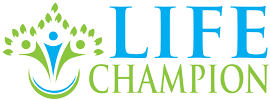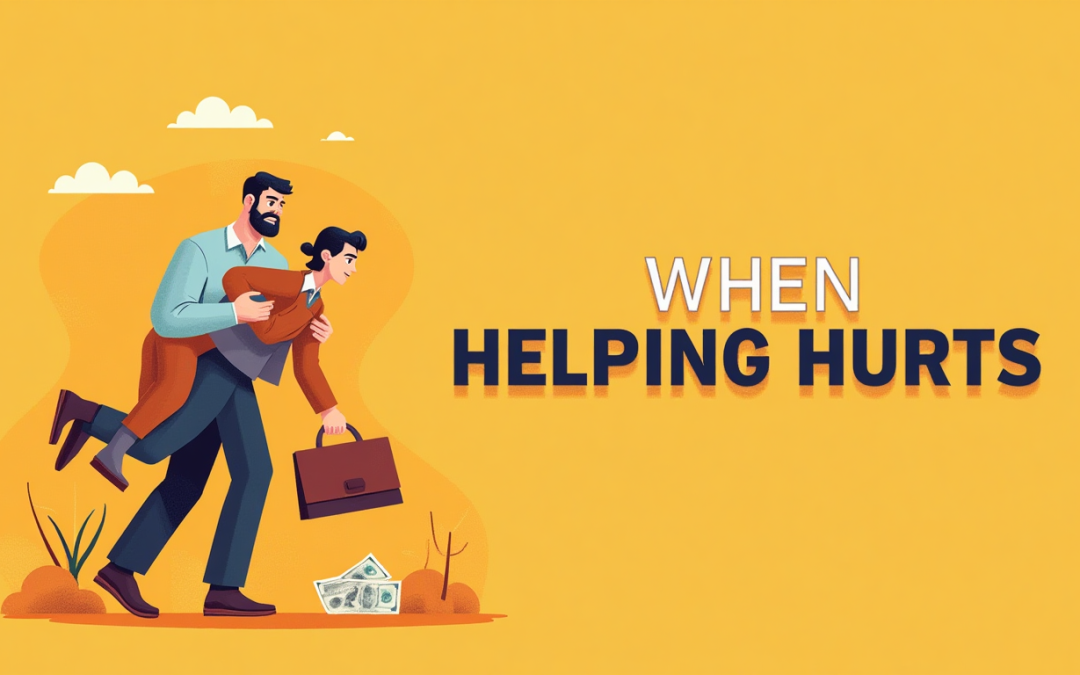Top o’ the Mornin’ to Ya!
TLDR: Discover why doing too much good can actually hurt rather than help, and learn the difference between genuine love that serves and overdoing that debilitates. Understand when early is too early, when help becomes harmful, and how to love in ways that truly make a difference.
What?
Do you ever overdo it? Do you ever do so much good that it’s no good? That’s what we did this morning.
Our bus came 10 minutes earlier and they announced that, so we’re going out to the bus earlier. I thought she was right on time. When I got to the bus stop I looked at my watch because I’m just following and going with the flow of my daughter, leading her life and me just being along to be present and love her. We got to the bus stop at the time we’re supposed to leave home. So we were like 10 minutes early for the bus. When they told us it was gonna be early, there was five extra minutes. So we were 15 minutes early.
We got to sit and visit and have the dog around us. Being that much earlier didn’t do – I was gonna say it didn’t do any good, but it did do good. It gave us quality time together sharing and loving and spending it together with no other concern whatsoever.
But sometimes helping hurts. Sometimes overdoing good can hurt. There’s a book out there called “When Helping Hurts” that talks about some of the ministry work and missionary work that people have done and how it really debilitated the people. Part of our social system is broken and it debilitates people. It demotivates them. It motivates them to do the wrong things and begin the wrong way.
Sometimes overdoing good is just no good. Can’t really overdo love, or can you? Remember in junior high when you’re like all over that person and they’re like “Oh, give me space, get away, leave me alone.” So I guess you can overdo love in actions, but that’s not really love now is it? Love is really knowing and learning and feeling and doing the right things to love and serve somebody. So they’d never have that feeling of “I need space and time.” They never have that feeling of “It’s just stuff, it’s just money, it’s just gifts, it’s not matching my love language.”
Why?
I share this because Kingdom Family Leaders often confuse more with better. We think if early is good, earlier is better. If help is good, more help is better. If giving is good, giving more is better. But sometimes our well-intentioned efforts actually debilitate rather than empower, create dependence rather than growth.
This applies to parenting, ministry, business leadership, and marriage. When we overdo good, we can remove the very struggle that creates strength. When we help too much, we prevent people from developing the capability to help themselves. When we give without wisdom, we can create entitlement rather than gratitude.
The challenge is that overdoing often comes from a good heart wanting to serve and love. But love without wisdom can hurt the very people we’re trying to help.
Lesson
The principle of “when helping hurts” reveals that effectiveness isn’t about quantity but about appropriateness. Being 15 minutes early to the bus stop created unexpected quality time, but in other contexts, overdoing creates problems. Our social systems that give without requiring responsibility often debilitate rather than empower people to thrive.
True love requires knowing, learning, feeling, and doing the right things to serve somebody – not just doing more. When someone says “give me space” or “leave me alone,” that’s not love being rejected – that’s inappropriate actions being rejected. Love matches the recipient’s needs and love language, not just the giver’s desire to give.
The key distinction is between enabling and empowering. Enabling does for others what they should do for themselves, creating dependence. Empowering gives what’s needed for them to grow in capability, creating strength. Sometimes the most loving thing is to do less, not more.
This applies to missions work, social programs, parenting, and personal relationships. When we remove all struggle, we remove the opportunity for growth. When we give without wisdom about what truly serves, we can hurt while intending to help.
Apply
Identify one area where you might be overdoing good – perhaps in parenting, helping a friend, or serving in ministry. Ask yourself: “Am I empowering this person to grow, or am I enabling dependence?” Write down what would change if you focused on appropriateness rather than quantity of help.
Read or study the five love languages so when you want to show love, you can do it in ways that truly connect rather than overwhelm. This week, before offering help or going the extra mile, pause and ask “Will this empower or enable? Will this serve their actual need or just my desire to give?”
You be blessed!


